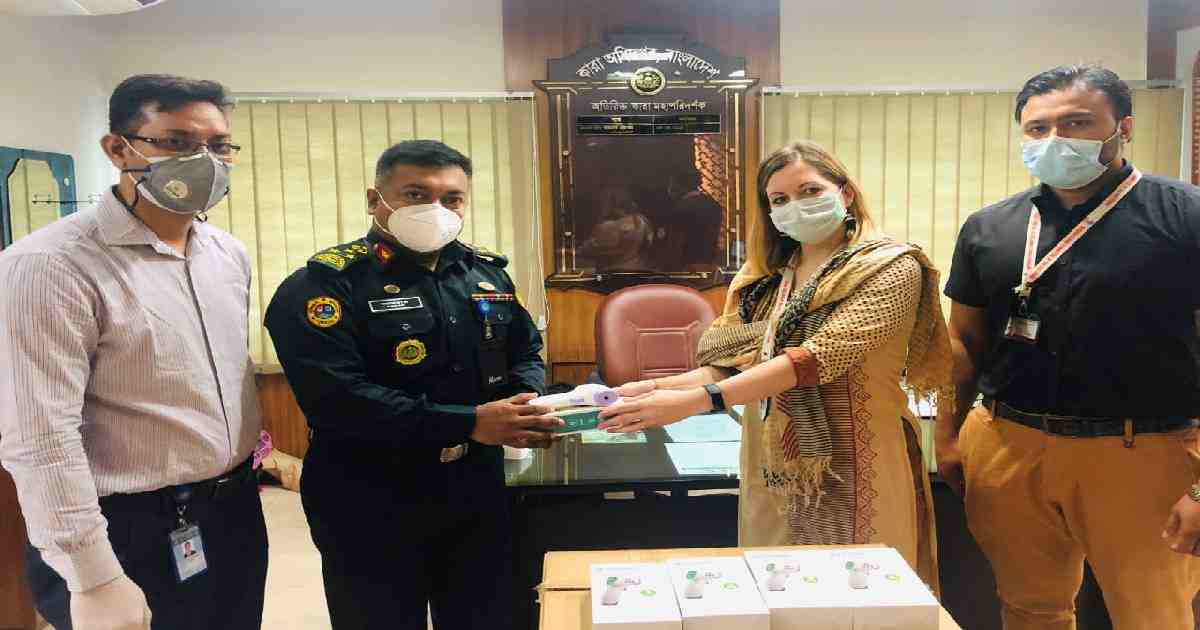International Committee of the Red Cross (ICRC) has stepped up its support to Bangladesh going beyond Rohingya camps in Cox's Bazar to help address the challenges amid coronavirus pandemic and the growing needs at the national level, says its Bangladesh chief.
"We're all aware that the country is facing a tremendous challenge nationally. That's why we’ve stepped up our support to Bangladesh Red Crescent Society (BDRCS)," Pierre Dorbes, Head of ICRC Delegation in Bangladesh, told FT in an interview.
Talking to this correspondent from Konarpara camp on the Bangladesh-Myanmar border, he said the ICRC is well aware that the needs are going beyond the area of Konapara and Rohingya camps in Cox's Bazar district.
The ICRC Bangladesh chief said they are extending their support at the national level with a "very strong focus" on medical facilities and food supply.
.jpeg)
"Beyond this camp, we also have in mind the situation in other areas of Bangladesh. I'm thinking about Chattogram Hill Tracts (CHT)," he said adding that they are going to help address the needs of people that have been deeply impacted by holidays and shutdown.
Dorbes said the incomes of a group of people have drastically dropped and they want to help address that as an emergency response to COVID-19 situation.
The Konarpara camp, on the Bangladesh-Myanmar border, is a no man’s land housing 620 displaced families from Rakhine state, according to the ICRC.
Dorbes said they are increasing their support for the Sadar Hospital in Cox's Bazar and put in place a new emergency department for Coronavirus treatment.
Partnership Essential
The ICRC Head of Delegation said they have been in close contact with the Ministry of Home Affairs, more specifically with the Department of Prisons with strong focus on COVID-19, so that they can prevent or mitigate as much they can the risk of infection in prisons.
He said it is cooperation that is ongoing and will continue in close coordination with the government. "Our partnership with BDRCS is essential."
Working to enhance the preparedness of 68 prisons across Bangladesh in the face of a possible outbreak of novel coronavirus, the ICRC took infection-control and prevention measures together with the Prison Directorate and the Ministry of Home Affairs.
Simona Cervi, who leads the ICRC team responsible for visits to detention facilities in Bangladesh, said, "We’re supporting the prison authorities by sharing recommendations on ways to improve their preparedness in view of the pandemic. One of the ways is to help put in place a comprehensive response in line with the ICRC guidelines and National Preparedness and Response Plan for COVID-19 in Bangladesh."

Body Management
ICRC Head of Delegation Dorbes said they have been closely working with the Ministry of Health and the Ministry of Disaster Management and Relief in the field of the management of dead.
As deaths due to COVID-19 keep rising in Bangladesh, the bereaved families face yet another grim reality – that of not being able to bury their loved ones with full rituals due to the fear of exposing themselves to the virus.
In most cases, families and community members have not been able to attend the funeral prayers either because of physical distancing measures or due to fear of infection.

Some families are already worried about not knowing how the bodies would be handled during the final moments.
Helping people find the best way possible right now, a few charitable organisations, along with the authorities and the ICRC are taking measures for the proper handling of the dead in Bangladesh.
The Directorate of Health Services has appointed Al-Markazul Islami and Quantum Foundation, two NGOs, to help bury COVID-19 infected bodies.
While Al-Markazul Islami is active in Dhaka city, Quantum Foundation is working across Bangladesh, barring Dhaka, according to ICRC.

"Unfortunately, the COVID-19 crisis has shown us everywhere in the world that we may have significant increase of people that will die because of the virus. So, we’ve to get ready for that," said the ICRC Head of Delegation.
He said they have clear protocols how to manage bodies and how to ensure dignified burial of these people with necessary Islamic rituals and necessary protection for the people who are going to take care of that.


